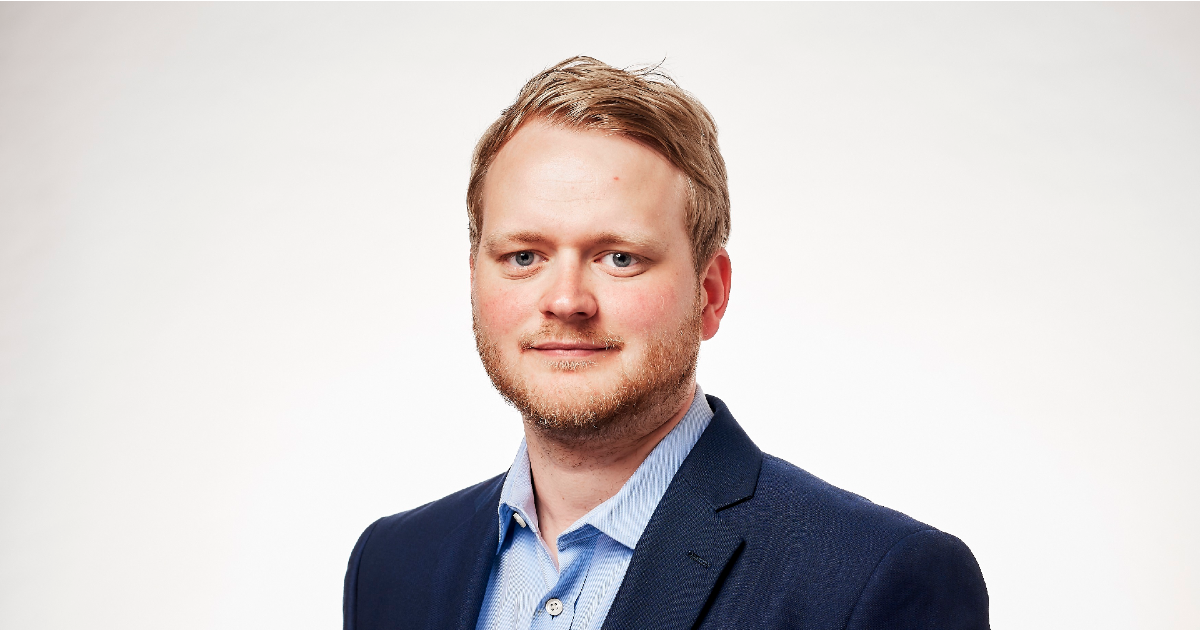Two Minutes With… Kyle Caldwell, Collectives Editor, Interactive Investor

We speak to Kyle Caldwell, Collectives Editor at Interactive Investor, about multimedia content, interviewing some of the biggest stars of the fund management world, and what he would do with a £10,000 windfall.
Tell us about yourself
I’m a financial journalist with over 10 years’ experience writing about investment – mainly funds, investment trusts and exchange-traded funds (ETFs). At interactive investor (ii) as Collectives Editor I am responsible for all our collectives content and work closely with Tom Bailey, the ETFs editor at ii.
I write fund and investment trust news pieces for the website, news analysis articles and in-depth features. I commission five features a month – the majority are news driven or have an interesting data hook. Each feature has some sort of practical or educational element to it, so that our readers receive useful information that they can act on if they wish. Recent pieces I have commissioned include ‘how to avoid ESG fund greenwashing’ and ‘mix and match to profit from recovery for value funds and trusts’.
A big part of the job is interviewing fund managers. We carry out video interviews – typically two a month. I also host our Funds Fan podcast, which we record twice a month. The podcast has a fund manager guest as part of each episode, which we edit down to around 10 to 13 minutes.
Prior to ii, I was Deputy Editor at Money Observer. In a former life I was a personal finance reporter at The Daily Telegraph and before that Investment Week gave me my break into the fund management industry.
What is ii trying to achieve?
Editorially we strive to empower people to become more informed about their investments and make better investment decisions. Our customers are retail investors, and central to each article we write we ask ourselves: ‘Is this useful?’
Our content caters for investors of all persuasions – covering shares (both UK and international), funds, investment trusts and ETFs.
I like to write and commission features with potential solutions or remedies to an investment problem or issue – unpicking the details that goes beyond reporting the news. Providing practical guidance is key to what we do.
Who is your audience?
We have over 400,000 customers now at ii. We cater for both the engaged and beginner investors.
It is not just the website we use to reach our audience – we have over 17,000 subscribers to our YouTube channel, for example. Our podcasts are hosted on a number of platforms, including Spotify. The Funds Fan podcast typically has between 2,000 and 3,000 listens per episode.
Does the delivery matter – do podcasts do better than written articles?
A podcast gives the listener the opportunity to be ‘the fly on the wall’ and hear the interview in full and take a view on whether the fund manager has answered the questions appropriately and come across well or not, particularly when a question is challenging. It also puts pressure on me to ask appropriate questions and not shy away from asking challenging ones; whereas, with a written article the reader does not know the full story regarding what questions were asked and the fund manager’s full response – as only snippets of information are chosen by the journalist.
People consume content differently. Some prefer video, some podcasts, and others a written article. We try to cater for everyone where we can, which is why we include transcripts for videos were possible.
Who’s the most famous fund manager you’ve interviewed?
I interviewed Terry Smith earlier this year alongside my boss Lee Wild, editor and head of equity strategy at ii. Fundsmith Equity is the most popular fund with ii customers, so that was a real coup for us.
I have interviewed James Anderson at Scottish Mortgage a couple of times over the years, which is the most popular investment trust with our customers.
Tell us about your Super 60 and ACE 40 funds lists
Both lists include range of active and passive funds, investment trusts and ETFs, rigorously selected by our impartial experts. I am one of the impartial experts that sits on ii’s Investment Selection Committee. Both lists contain best-in-class funds for a wide variety of markets and asset classes. Our ACE 40 contains funds that are managed in a genuinely ethical manner.
How has the pandemic changed your working habits?
I have been working from home since mid-March last year. During that time, I have been recording podcasts and videos from home, and on that front I have been finding it easier securing dates in the diary with fund managers. Pre-Covid it would often take several weeks or a couple of months to tee up an interview.
What positives have you taken from the whole lockdown experience?
The lack of a commute has been a positive, which has handed me more time to see my two young children.
What does our industry get right, and what needs improving?
Compared to a decade ago fund groups have improved in their communications to the end investor by writing in a more accessible way, although there is still too much jargon.
ESG is a minefield, and the fund management industry needs to come together and standardise some of the terms that are being used, otherwise investors simply won’t engage.
If you could give a younger version of yourself one piece of financial advice, what would it be?
Put money into a pension as soon as you can and don’t assume how a pension ‘default fund’ invests is appropriate for your age.
What is the one column or website that you read every day?
I read as widely as I can, across all the national newspaper money sections and all the investment trade titles.
What would you do if you received a windfall of £10,000?
Usually invest it, but with a growing family it would be going towards the hope of extending our house.
